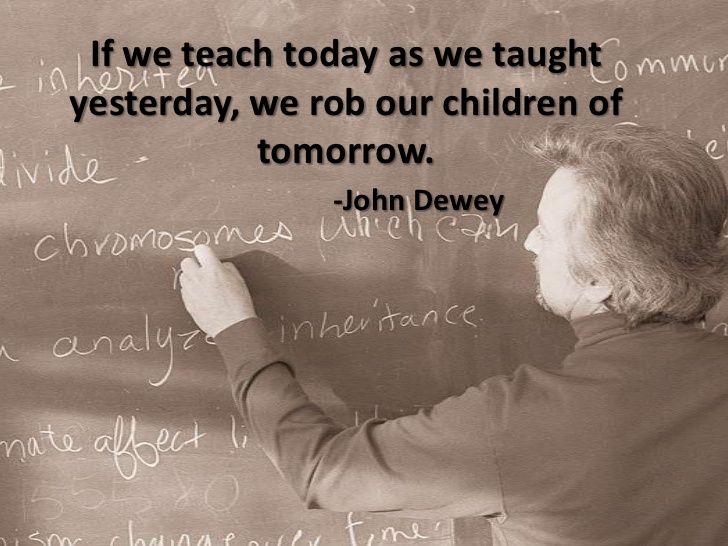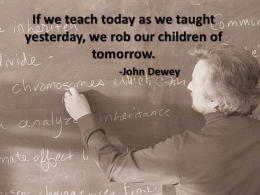Since joining the area of education, I've been thinking about the necessity to reflect on our teaching methods and rethink our roles as instructors to improve our classroom activities.
The need for a "knowledge fragmentation" based on integrated knowledge that can contextualize information, nurture skills, encourage cooperation, customized learning, and eliminate impediments; in short, that it can fit all the students in the classroom allow them to take part.
This comes to my classmates' presentation two weeks ago based on John Dewey's Experiential Learning. According to their presentation, the foundation of experiential learning is that knowledge is generated through transformation brought about by experience.
Concrete experiences are abstracted into concepts that are actively tested by new experiences. It does not limit this dynamic to the presentation of a single concept; rather, it seeks to absorb ideas and put them into practice in order to assist individuals in developing their personal and vocational talents through practice, simulation, or the dynamics with meanings. The situation described above will occur as long as there is a sufficient process of reflection and the students' desire to investigate. Experience learning is not an exception to this dynamic.
Education has a long history, and I understand that each theory quotes a new author, such as John B. Watson, from my earlier article on behaviorism. At the turn of the twentieth century, education was reforming itself, and John Dewey was the founder of contemporary experiential education. The class presentation gave me some fascinating insights into the fundamentals of experiential learning:
Individuals should engage in what they learn.
Learning should occur via experiences both inside and outside of the classroom, not only through the "teacher."
Learning should be meaningful to the individuals involved. Students must act in the now and live in the future.
Learning must assist students by educating them to live in a world that is always changing and developing.
As a result, we may define experiential learning as the process of learning, information, behaviors, and possibly values via inquiry, observation, and experience. Because of inputs and responses, these transformations may be stable or unstable. Individual learning may transform if addressed and engaged in group learning, which improves integration, effectiveness, and productivity while also fostering intellectual achievement, organization, and a desire to learn.
According to a National Training Laboratory research from 1977, people learn 20% of what they see, 20% of what they hear, 40% of what they see and hear concurrently, and 80% of what they experience or discover on their own, which has a shifting influence on the individual. Memory increases because of life events. As a result, only if learning based on genuine experiences may grow and enhance abilities can there be a significant shift in attitudes among individuals in these experiences, who find ideas and criteria for reinforcement for themselves.
Experiential learning can be accomplished in the following ways:
Perception: People gain cognitive and behavioral awareness of choice via experience and action.
Conceptualization: People seek to assess their reality and experience, develop action models through theoretical debates and instances, and exchange thoughts to better understand experiences.
Contextualization: individuals use and contextualize research objects to bring them closer to their reality, strategic planning, and self-evaluation, guaranteeing that each individual relates, takes part, and realizes their reality.
Experiential learning encompasses other forms of meaningful learning because people may absorb, alter, and get new knowledge besides learning in unusual, fascinating, and inventive ways. We may apply this knowledge in areas other than education, such as community and health.
It is critical to emphasize the significance of establishing settings that apply to the reality of the participants, their domain, and perceived requirements, as well as balancing and integrating experience with the concepts and principles required to attain the learning objectives.
I would want to conclude that this theory is well established and developed; it's not just a "trendy" tool that we can add into our classes or workplaces to make them more flexible and pleasant.
As I previously stated in this reflection, this theory has far-reaching implications that extend beyond the classroom. When we look at its basics, we can see that it applies to any outdoor activity, even the medical field, as it does to education.










